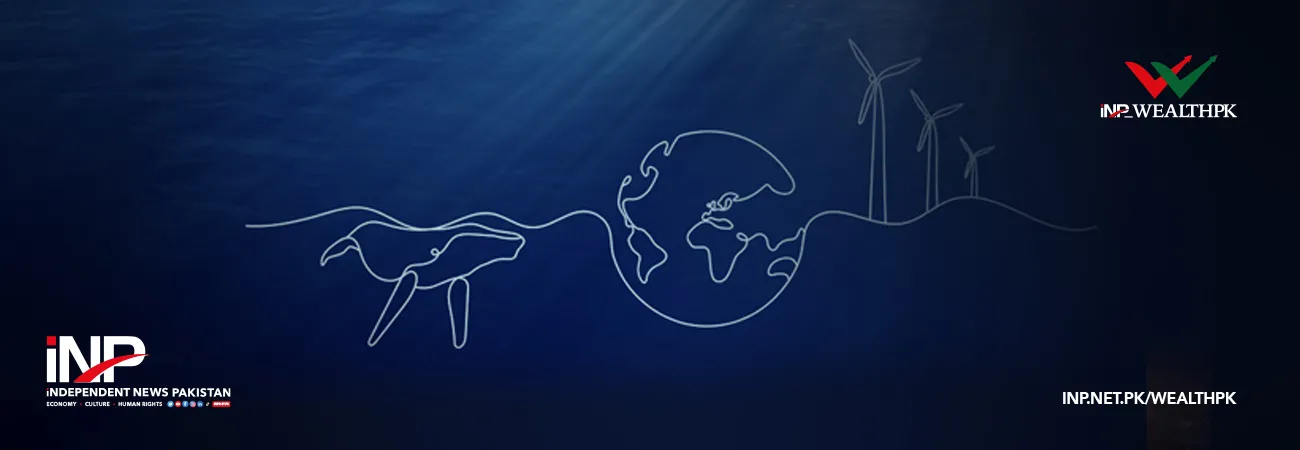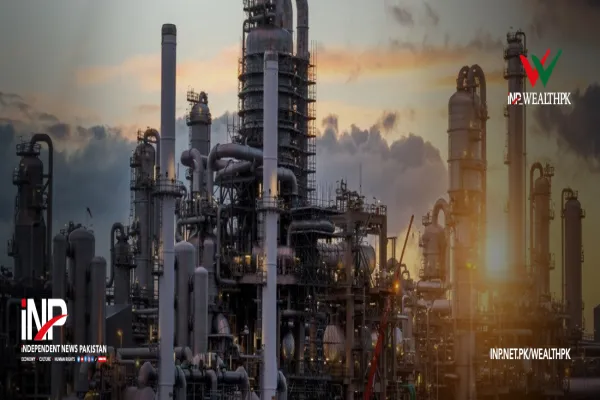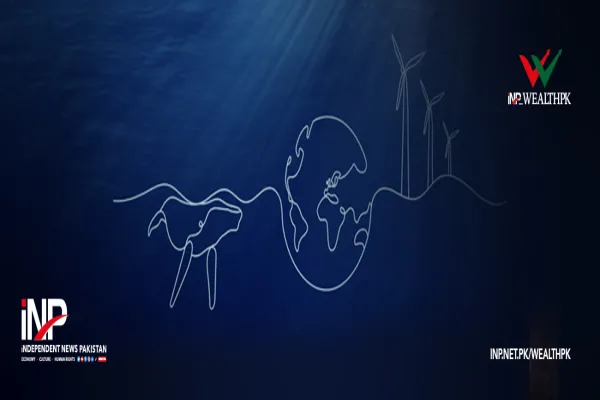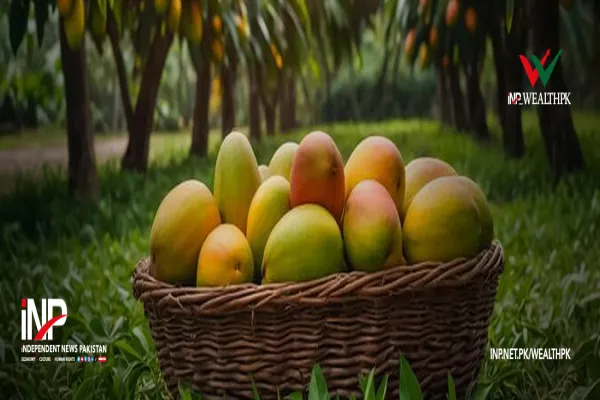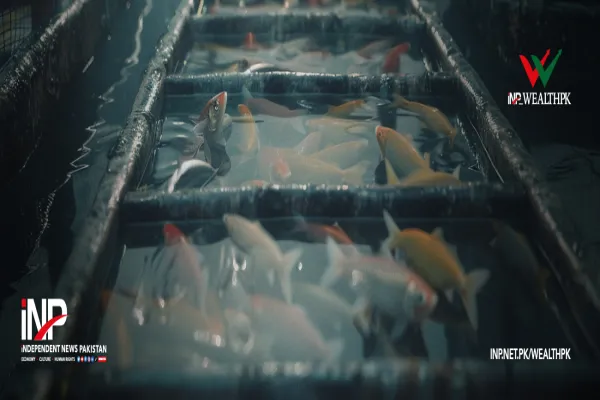i INP-WEALTHPK
Qudsia Bano
Pakistan’s Ministry of Maritime Affairs has begun drafting a comprehensive blue economy policy. The initiative aims to unlock over $100 billion in potential annual revenue from Pakistan’s vast maritime resources. The policy, now in the drafting phase, is positioned as a cornerstone of the country’s long-term economic vision and a key pillar in achieving sustainable development.
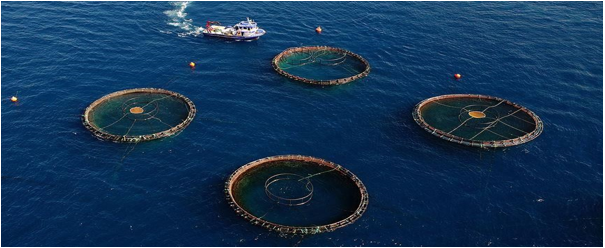
Chairing a high-level meeting recently, Federal Minister for Maritime Affairs Muhammad Junaid Anwar Chaudhry directed officials to fast-track policy formulation. Emphasising the urgency of action, the minister stated that the blue economy is no longer a futuristic concept but a national priority that demands immediate attention. He highlighted the significant opportunity cost of underutilised marine assets, with current contributions from the maritime sector estimated at just $1 billion annually, representing only 0.4% of GDP.
The planned policy will focus on the sustainable development and use of ocean and marine resources, encompassing fisheries, aquaculture, maritime trade, coastal tourism, renewable energy, ship recycling, and the transformation of ports into green and smart infrastructure. According to the minister, seafood exports currently generate around $450 million annually, while maritime tourism adds about $300 million. These numbers, he said, only scratch the surface of what is possible.
Dr Farah Naz, a former policy expert at the Ministry of Maritime Affairs, told WealthPK that the potential remains vast yet largely unrealised. “Pakistan has over 1,000 kilometres of coastline and an exclusive economic zone spanning nearly 300,000 square kilometres. The resources are there, but fragmented governance, lack of infrastructure, and minimal investment in maritime innovation have held us back,” she said. “This policy could be a game changer if it’s implemented with the seriousness it deserves.”
According to preliminary ministry estimates, shipping alone could contribute $8 to $10 billion annually if key bottlenecks such as port inefficiencies and outdated shipping technologies are addressed. Similarly, aquaculture has the potential to bring in $10 billion, while fisheries could add $7 to $8 billion. Coastal tourism, an underdeveloped area with high global demand, could contribute another $5 to $6 billion if properly developed with eco-friendly infrastructure.
However, experts caution that policy alone is not enough. Dr Naz warned that unless structural reforms accompany the new strategy, the goals may remain aspirational. “The success of the blue economy hinges on inter-agency coordination, investment in research, and regional partnerships, particularly in areas such as marine biotechnology and sustainable fisheries management,” she said. The ministry has committed to a fully consultative approach in the policy’s development, involving provincial governments, industry stakeholders, academic institutions, and international partners.
The draft policy, expected soon, will outline specific investment strategies, institutional reforms, and legal frameworks necessary to drive growth in the sector. The policy, once finalised, could signal a major shift in Pakistan’s economic planning, placing the maritime sector at the centre of its development agenda. With the right execution, it could reshape coastal communities, boost exports, and help Pakistan gain a stronger foothold in the global maritime economy.
Credit: INP-WealthPk


